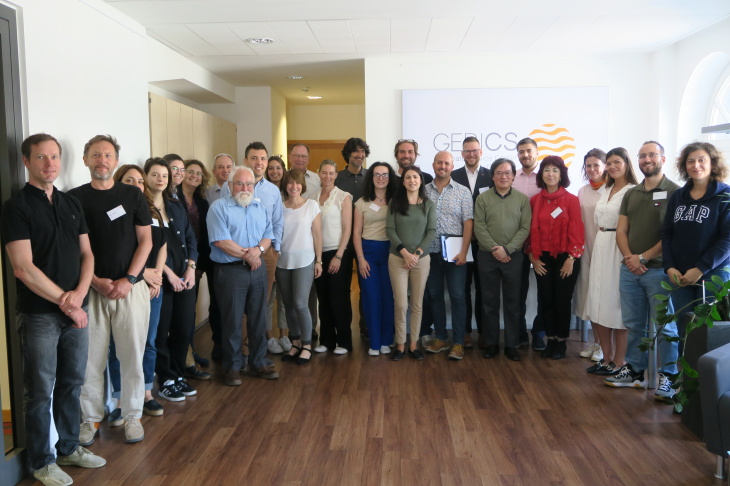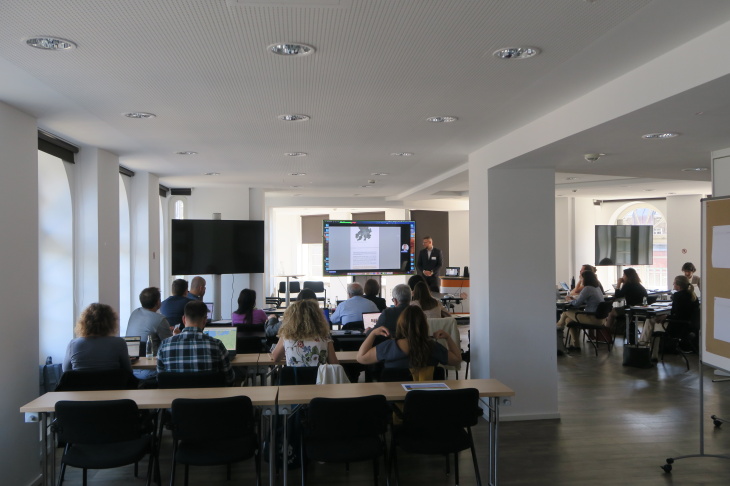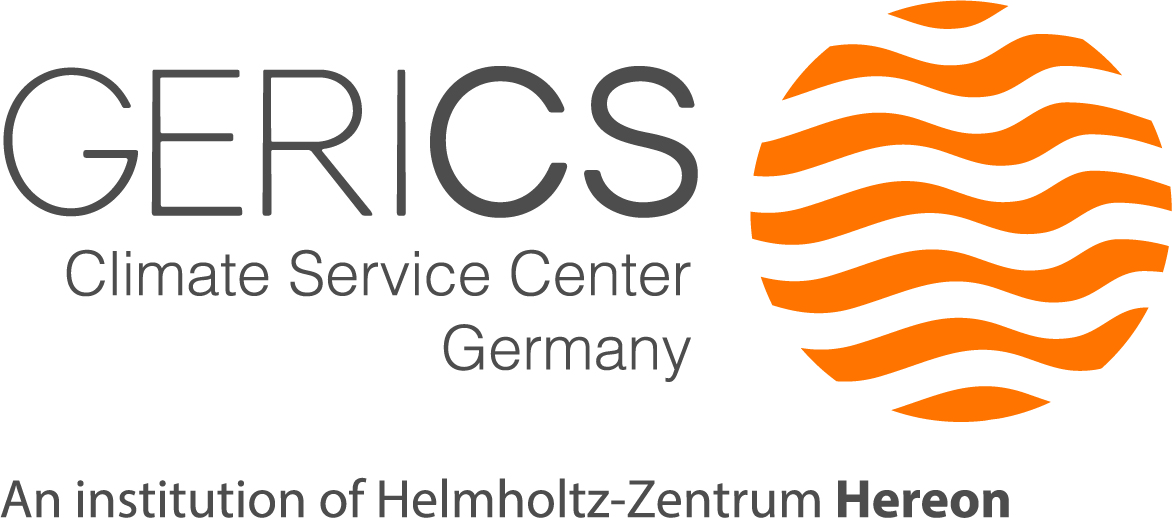Adapt, but correctly
The EU project VALORADA brings together climate data from all over Europe and is coordinated by Hereon

The researchers participated enthusiastically in the kick-off at GERICS.
Photo: GERICS / Thea Wübbelmann
The staff of the Climate Service Center Germany (GERICS) at the Helmholtz-Zentrum Hereon are pleased: With the kick-off of the EU project VALORADA at the beginning of June, the institute will take over its coordination. Over the next three years, tools are to be developed that will allow a wide variety of data sets - both climate and non-climate data - to be brought together. These will help different regions of Europe to adapt to climate change. Thirteen other European research institutions are involved in the project.
From droughts and heat waves to flooding after heavy rainfall - climate change has long since arrived in Europe. In its missions, the European Union (EU) has therefore set itself the goal, among others, of tackling adaptation at the local level at full speed and making 150 European regions sustainably managed and climate resilient by 2030. The EU project VALORADA seeks to contribute to precisely this goal. How must agriculture be supported by politics and administration? What help is there for regions traditionally often affected by floods? How to react to increasing droughts?
GERICS is responsible for the coordination of 14 partners of the first cooperation project coordinated at Hereon in the new EU research program Horizon Europe. It is also one of five EU cooperation projects in the Helmholtz research field "Earth and Environment" coordinated by a Helmholtz-Zentrum.
Information that is urgently needed

Photo: GERICS / Knut Görl
Resilient data and strategies derived from them are one of the keys to resilience and adaptation to climate change. One goal for meeting this challenge will be to develop tools for analyzing available but partly fragmented data sets. Climate researchers are taking an interdisciplinary approach, with natural and social scientists working hand-in-hand with IT specialists and communications experts. "As the coordinator of the consortium, our center is primarily contributing social science expertise in order to better understand how information is used by actors and decision-makers," says GERICS researcher Dr Cristobal Reveco.
Old data, new analysis
VALORADA's conceptual framework is implemented through five model projects covering different sectors, climate risks and community systems. These are: Gabrovo and Sofia Municipalities (Bulgaria), Statutory City of Prorov (Czech Republic), Occitania Region (France), Central Greece Region and Molise Region (Italy). The regions will use and test the analysis tools in practice. "The tools will be developed, tested and improved in the project together with stakeholders on the ground so that the results are used," says GERICS climate researcher Dr Jörg Cortekar.
Further information:
Contact:
Climate Service Center Germany (GERICS)
Phone: +49 (0) 40 226 338-445
E-mail contactHelmholtz-Zentrum Hereon I Communication and Media
Phone: +49 (0) 4152 87-1648
E-mail contact